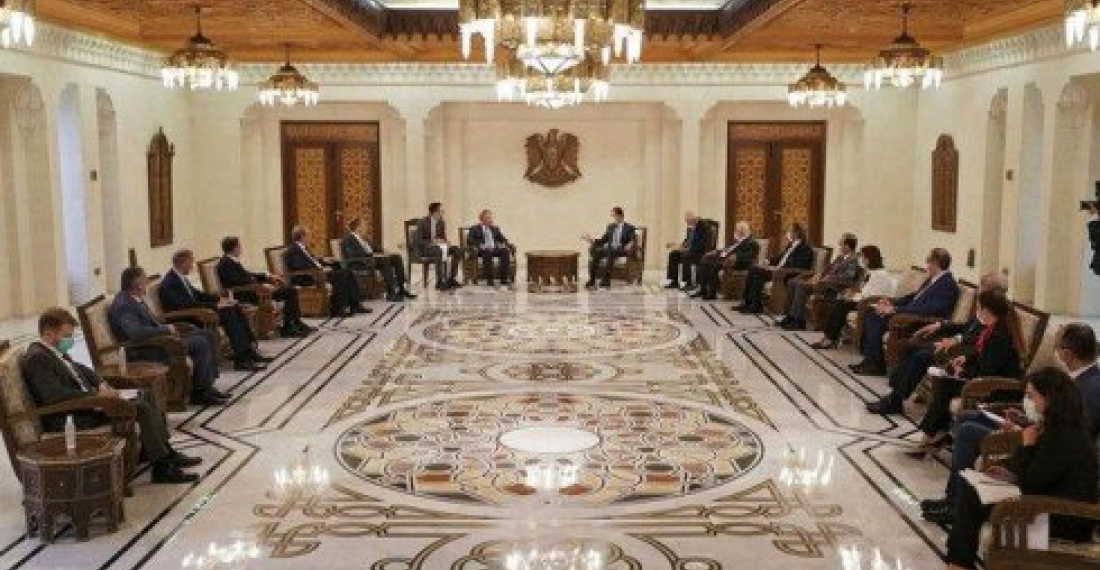Russian Foreign Minister, Sergei Lavrov, arrived in Damascus on Monday (7 September) on his first visit to Syria since 2012. Lavrov met with Syrian president Bashar al Assad and other officials.
Russia is a close ally and partner for the Syrian government on many issues. The visit by Sergey Lavrov comes amid a severe economic crisis in Syria and the coronavirus pandemic.
A Russian Economic delegation also arrived a day earlier. Some of the topics discussed are possible amendments to the Syrian constitution and Western sanctions on Syria, as well as efforts to fight terrorism.
Talks between government, opposition and civil society delegations resumed in Geneva late last month, discussing a possible new constitution for the war-battered country. The UN's envoy for Syria, Geir Pedersen has called the talks a prospective "door-opener" to a final resolution of Syria's long-running conflict.
source: commonspace.eu with Arab News (Jeddah)
photo: Russian Foreign Minister Sergei Lavrov met Syrian president Bashir al Assad in Damascus on 7 September 2020 (picture courtesy of the Syrian Arab Republic Presidency)






